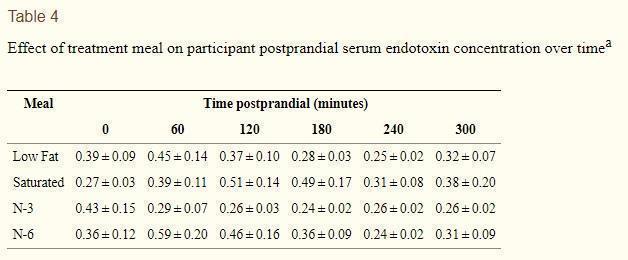raypeatclips
Member
- Joined
- Jul 8, 2016
- Messages
- 2,555
Yes, it's true. @raypeatclips Endotoxin absorption increase with saturated fat and decrease with unsaturation. This is normal, because the saturated fat is transporting the endotoxin via chylomicrons to the liver for detoxification. Fats that don't stimulate chylomicrons, such as medium chain fats, won't increase the absorption of endotoxins.
Edit: I noticed you said saturated fat transport the endotoxin for detoxification, yes I agree with that, so that is a positive of saturated fat in the diet, and should be included. Yet you don't want saturated fat in the diet?
Do you have any scientific proof to back this up, other than the study posted above that unfortunately uses a cream containing carageenan and polysorbate 80? (I really wish it hadn't because I want answers to this too.)
Peat has been saying for years that saturated fat helps with endotoxin, and I'm willing to believe it isn't, if you have some sort of proof to back up what you are saying.
Your posts remind me of tyw's from years ago, have you been inspired by him?
Last edited:

